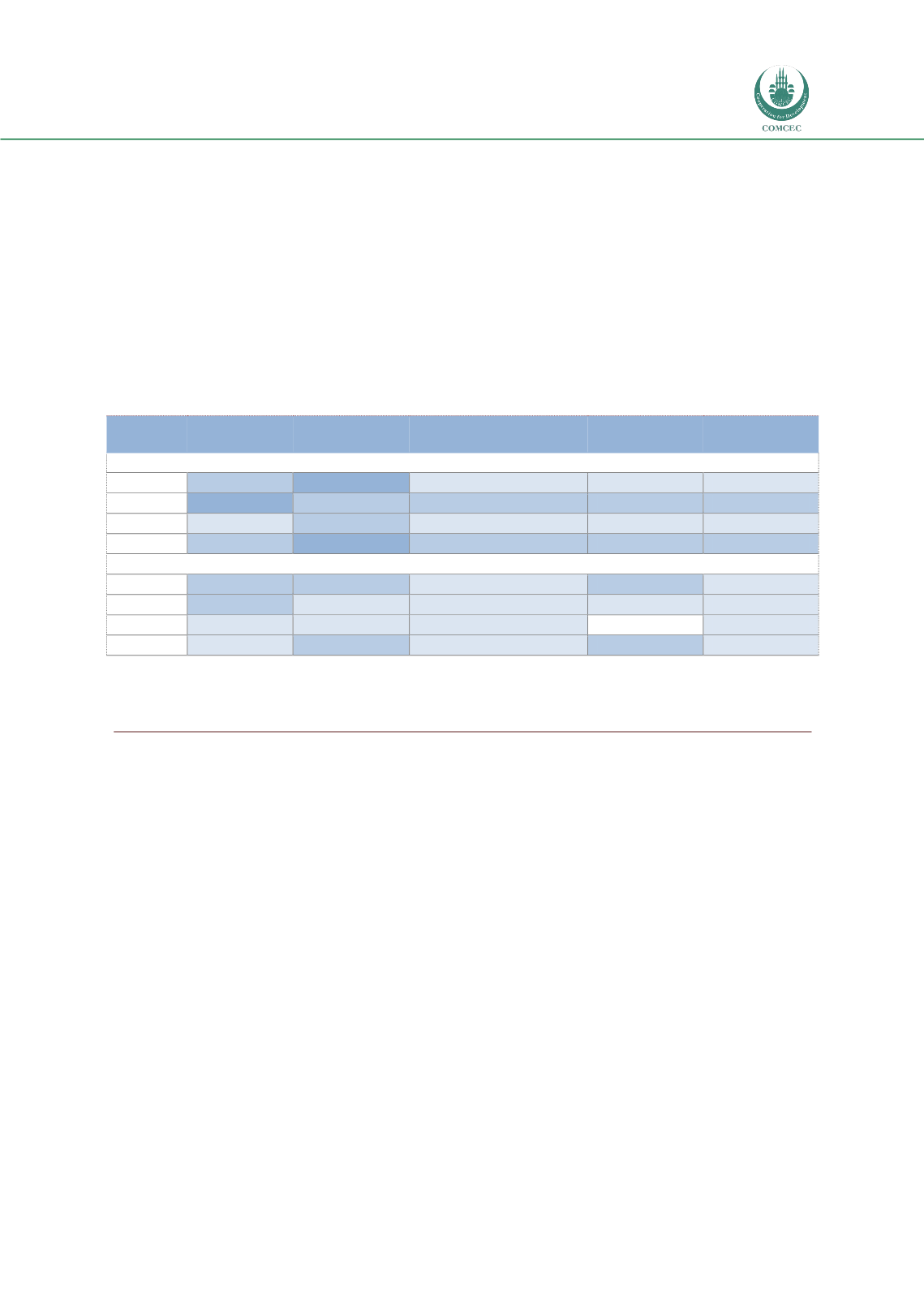

Facilitating Smallholder Farmers’ Market Access
In the OIC Member Countries
77
safeguard the country’s valuable natural resource endowments and help businesses
prosper. The credit system—a mix of formal, informal, and non-profit groups—has made
credit more readily available in Indonesia than in many peer countries.
Indonesia’s experience with oil palm offers an instructive model for collaboration between
smallholders and agribusiness. It shows that contract farming can be leveraged to supply
credit and technical information. At the same time, lines of communication can be blurred,
and results can be less impressive than expected, unless positive steps are taken to inform
and empower smallholder growers.
TABLE 14: RELATIVE REJECTION RATES FOR VARIOUS TYPES OF EXPORTS TO MARKETS IN
THE EUROPEAN UNION AND UNITED STATES, SELECTED COUNTRIES, 2010
Total
Fish
Fruit and vegetables
Nuts and
seeds
Herbs and
spices
EU inspectors
Indonesia
Medium
High
Low
Low
Low
China
High
Medium
Medium
Medium
Medium
Chile
Low
Medium
Low
Low
Low
Malaysia
Medium
High
Medium
Medium
Medium
US inspectors
Indonesia
Medium
Medium
Low
Medium
Low
China
Medium
Low
Low
Low
Low
Chile
Low
Low
Low
–
Low
Malaysia
Low
Medium
Low
Medium
Low
Source:
UNIDO, NORAD, and IDS 2010.
Turkey
Incomes in Turkey are among the highest of OIC countries. Although a gap remains
between average income per worker in agriculture and average national income, incomes
in both categories have grown steadily in recent decades
(Figure 47). Turkey’s rural
population is relatively large for a member country of the Organization for Economic Co-
operation and Development (OECD), although it has declined steadily, falling from 68
percent in 1961 to less than 30 percent in 2011.

















